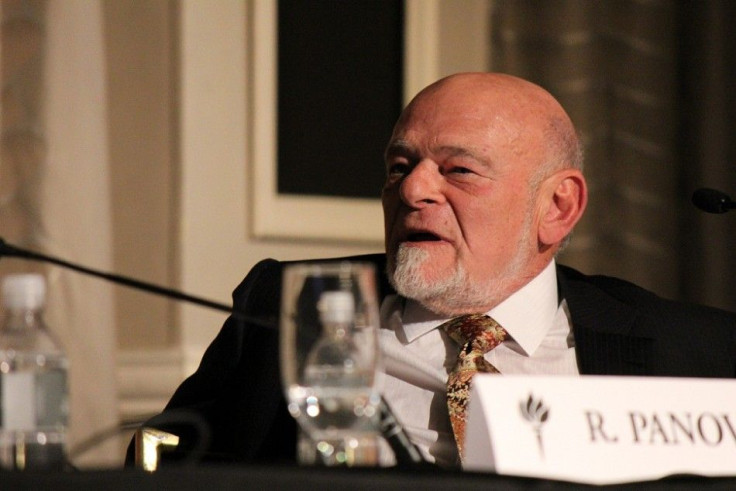In Lehman's Archstone Deal, 'Grave Dancer' Sam Zell Wins Again

Sam Zell, the Chicago real-estate mogul, has become so well-known for feasting on distressed assets that he's been called the grave dancer. This week, Zell took the nickname to the next level: He's about to receive $70 million from a ghost.
That would be Lehman Brothers Holdings Inc., the deceased investment bank that just exited bankruptcy and agreed to pay $1.58 billion for a 26.5 percent stake in Archstone, a massive apartment landlord with more than 70,000 units in the U.S.
Lehman already owns 63.5 percent of Archstone after surrendering a portion to creditors Barclays PLC (NYSE: BCS) and Bank of America Corp. (NYSE: BAC). It will take full control when the deal closes in the next two weeks.
The once-proud bank thwarted two bids of Zell's Equity Residential (NYSE: EQR), the largest publicly traded housing landlord in the country, which sought to take over Archstone by buying a minority stake as a means of gaining a voice in the company's decision-making.
Lehman had the right of first refusal and used it twice to block Equity Residential offers. But Zell will walk away with a combined $150 million: Lehman will give his company $70 million, while Barclays and Bank of America have agreed to pay it a $80 million breakup fee.
The $150 million windfall reflects the savviness of Equity Residential, said Alexander Goldfarb, a managing director and the senior real estate investment trust analyst with Sandler O'Neill + Partners L.P. While they didn't come away with the prize, certainly they can be pleased with it.
The deal is classic Zell: Use a minimal amount of equity -- in this case, just some attorney fees -- in an attempt to wrest control of a troubled company. As Equity Group Investments writes on its website, Zell's strategy is to take meaningful positions in debt securities with the flexibility to hold the investment, or to actively participate in a restructuring that results in a significant ownership stake.
That stingy approach protected Zell during his most public failure: the $8.2 billion purchase of the Tribune Co., publisher of the Chicago Tribune and Los Angeles Times. The company fell into bankruptcy within a year of Zell's arrival, and it has since suffered a management crisis. But Zell only put $315 million into the deal, a pittance considering his own net worth, estimated to be about $5 billion.
And unlike most investors during the boom, Zell knew when to make an exit. In 2007, around the time Lehman was making its original, ill-fated Archstone purchase, Zell sold his Equity Office Properties and its 573 buildings to the private-equity giant Blackstone Group for $39 billion, the largest leveraged buyout ever at the time. Blackstone began dismantling the portfolio and making its own profit on it -- until the economy crashed the next year, when the buildings emptied and plummeted in value. Zell escaped unscatched.
Zell has been involved in residential housing since the beginning of his career, and it's clear that he sees major upside in Archstone, which is robust despite today's turbulent housing market. As a rental landlord, it has thrived with increasing rents in urban centers and low vacancy rates, thanks to the depressed sales market. It has been a private company since the 2007 takeover by Lehman and Tishman Speyer, the landlord of Rockefeller Center, but its finances are evidently strong.
In April, Archstone raised $350 million for new investment opportunities, and it continues to break ground on new developments and buy existing properties. Zell himself called Archstone's portfolio extraordinarilly attractive in an April conference sponsored by the New York University Schack Institute of Real Estate.
And, like any good banker, Lehman plans to recoup the billions it has spent seizing control of Archstone, although it's unclear if it will seek to take the company public again, sell it, or sell just part of its portfolio. But it's clear that Lehman isn't planning to be a landlord for much longer.
“With full ownership of Archstone, we will now be able to move forward and pursue monetization opportunities for the company,” Owen Thomas, chairman of Lehman’s new board of directors, said in a statement Friday. “This transaction protects Lehman’s substantial investment, provides stability, and gives us control of Archstone’s future.”
And if Lehman does decide to sell some or all of the portfolio, one of the strongest bidders would likely be none other than Sam Zell, once again. And he'll have an extra $150 million to spend.
© Copyright IBTimes 2024. All rights reserved.





















